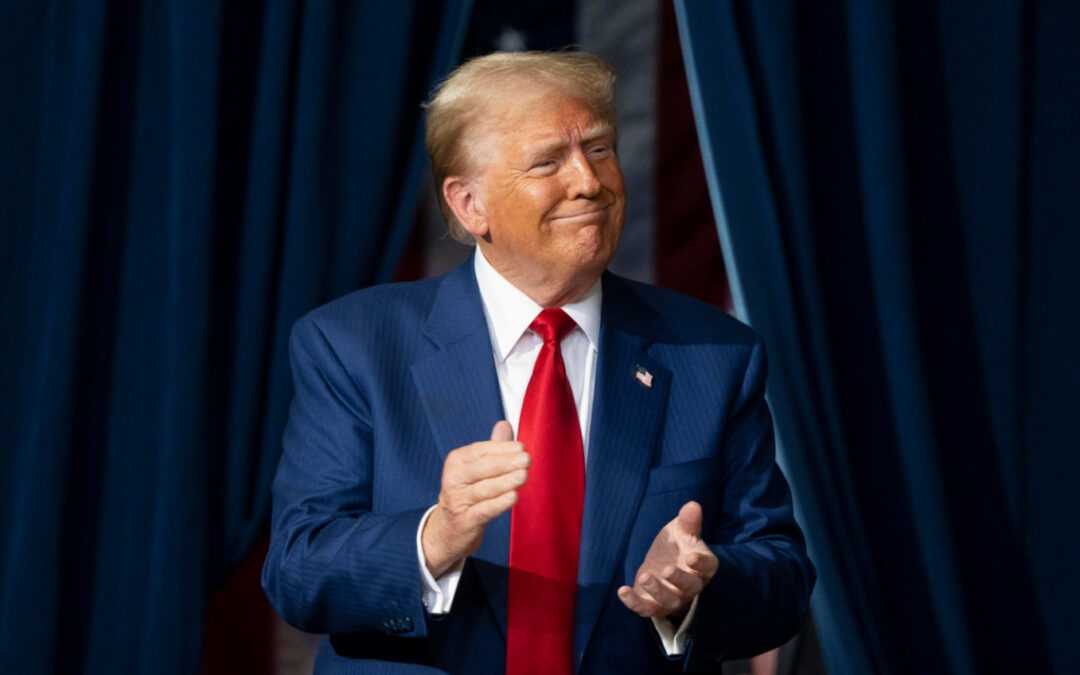President Donald Trump’s job approval rating has climbed to 55%, according to a new poll released over the weekend.
The Napolitan News and RMG Research survey found that 55% of registered voters approve of Trump’s performance, while 43% disapprove. The national poll was conducted among 3,000 registered voters from February 10 to 14, with a margin of error of 1.8%, Just the News reported, citing the data.
A separate poll released on Thursday showed a lower approval rating for Trump at 48%.
Meanwhile, a significant shift is taking place in how major corporations approach and fund Diversity, Equity, and Inclusion (DEI) programs.
President Trump accelerated this transition last month by signing an executive order eliminating DEI policies and staff within the federal government and extending the ban to federal contractors, The Center Square reported.
Some private companies had already begun scaling back DEI initiatives before Trump took office. However, following his directive, many have started retreating from their DEI commitments—at least symbolically—even if substantive internal changes remain limited, the outlet noted further.
Costco has resisted pressure, pushing back against the Trump administration’s directive, while other major corporations—including Amazon, Walmart, Target, and Meta—have announced a retreat from DEI initiatives. Media reports indicate that discussions about DEI on corporate earnings calls have dropped significantly.
Meanwhile, some companies, such as Wisconsin-based financial services firm Fiserv, have yet to make any public changes to their DEI policies.
Businesses that choose to maintain DEI-driven hiring practices face an uncertain legal landscape. This is especially relevant for companies like Fiserv, which receives hundreds of millions of dollars in government contracts, The Center Square noted.
Currently, Fiserv’s website still has a Diversity & Inclusion page, which says the company is “committed to promoting diversity and inclusion (D&I) across all levels of the organization, in our communities and throughout our industry.”
It also says that the company “partner[s] with people and organizations around the world to advance our D&I efforts and create opportunities for our employees, entrepreneurs around the world and the next generation of innovators.”
The company’s DEI page features a careers section that talks about “engaging diverse talent” and holding events to connect with “diverse candidates.”
Critics of DEI initiatives argue that they promote discrimination against white men and Asians, prioritizing hiring and promotions based on race and sexual orientation rather than merit.
A pivotal moment in the pushback against DEI occurred during the Biden administration when the U.S. Supreme Court struck down longstanding affirmative action policies at American universities, highlighting instances of discrimination against white and Asian Americans.
Trump’s election has further reinforced this legal shift, setting clearer boundaries on how race and gender can be considered in hiring, promotions, and workplace policies.
Trump’s anti-DEI order noted, in part:
In the private sector, many corporations and universities use DEI as an excuse for biased and unlawful employment practices and illegal admissions preferences, ignoring the fact that DEI’s foundational rhetoric and ideas foster intergroup hostility and authoritarianism.
Billions of dollars are spent annually on DEI, but rather than reducing bias and promoting inclusion, DEI creates and then amplifies prejudicial hostility and exacerbates interpersonal conflict.
DEI has become increasingly controversial as activists use the moniker to advance every liberal policy on race and gender, often at taxpayer expense. In the federal government, DEI had become widespread and infiltrated into every part of governance, from racial quotas for promotions at the Pentagon to driving healthcare research at the National Institutes of Health.
At private companies, DEI policies guided investment decisions via ESG (Environmental, Social Governance) as well as personnel decisions with racial quotas for company board rooms. Those ideas are out of favor with the Trump administration.
Some of the companies resisting the shift from DEI could face legal action.









